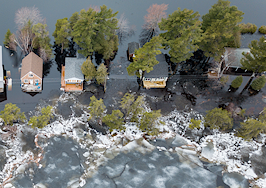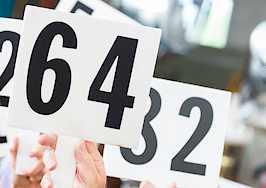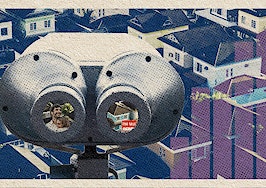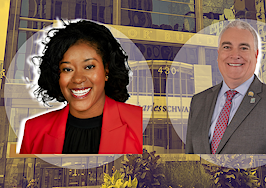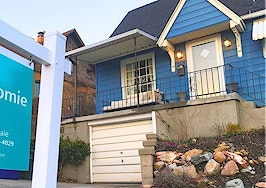Sometimes I think that if I were in a crowded theater filled with real estate professionals and there was a fire, I could clear the room faster by shouting out “climate change” than I could by yelling “fire”.
We used to call it “global warming” but now it’s referred to as “climate change” because it was too hard to explain the difference between climate and weather, and as a result, every time it got cold outside people would question the whole idea of global warming. I have stopped worrying about being politically correct and started saying global warming again.
A few years ago, when Inman writers were encouraged to write about threats to the real estate industry, I wrote about climate change and predictably got negative feedback from readers. Even though studies show that the majority of American’s believe that there is such a thing as climate change those are not the people who read my articles or leave comments on them.
At the time I didn’t even know that climate change is considered by some to be political rather than scientific. Climate change remains the biggest threat facing real estate, and by extension, the real estate industry.
Climate change and real estate
As a broker I generally don’t want to take responsibility for anything that isn’t my responsibility, and since I can’t even predict how climate change will affect a house or a neighborhood or when those effects will be felt, I generally don’t bring up the subject of climate change with my clients.
When I have clients, who are interested in the topic I have a lot of information I can share with them on everything from how to make a house more energy efficient to how to compost household food waste and use it in the garden.
As the owner of a very old house, I have a lot of experience retrofitting an old house and reducing energy use and costs. It has been like a hobby for 30 years now.
I won’t argue about climate change. There isn’t any point. My mind isn’t going to be changed, and I don’t think I can change anyone else’s mind.
How to go green
The good news is that each one of us can do our part to lower our carbon footprint and contribute less to the greenhouse gases that are causing global warming, which is causing glaciers to melt and sea levels to rise and may ultimately result in the extinction of mankind.
Here are a few easy things anyone can do:
- Drive fuel-efficient cars.
- Drive less.
- Fly less, or not at all.
- Eat less meat.
- Replace old appliances with Energy Star appliances.
- Retrofit your old house to make it more energy-efficient.
- Be able to direct clients to information about making a home greener.
- Make your business greener by reducing waste and improving energy efficiency in your workspace.
I don’t have to wait for new rules, or for the government to make laws. I have already stopped using plastic bags and straws and will not buy beverages in plastic bottles. When I have a choice, I always choose the greener alternative because I can.
Where I live in the frozen north land, an energy-efficient home can mean lower heating bills. It isn’t hard to find clients who appreciate lower heating bills. When I show houses, I like to point out energy-efficient heating plants and water heaters.
When clients ask about energy efficiency, I give them a list of resources I have collected over the years so that they can get answers to their questions from experts.
I have choices about my impact on the environment. In 2018 I stopped buying new clothes. I buy one or two new items of clothing a year and if I need anything else, it comes from the local thrift shop.
That might seem extreme, but I have met quite a few people who are not buying anything new or who would like to learn how to stop buying so much clothing.
Good for business
My office and most of my business appointments are close to home. It is a choice I made a long ago. I can often walk or bike to meet with my clients, and so far, no one has held it against me. In fact, sometimes it is good for business.
When I write articles for my blog about old boilers and energy efficiency, people click on them — more so than articles about how to sell a house. There’s also a lot of interest in topics around how to get rid of excess stuff.
Upcycling has become a kind of hobby for me. I take old furniture and other household items and transform them into something more useable.
Most of the gifts that I gave family and friends this holiday season were handmade or refurbished or upcycled items.
What I buy, or don’t buy, and how I use natural resources and energy is my choice. If you have changed your lifestyle for environmental reasons, you’re not alone.
People who work in the real estate industry need to know that some of their clients might be like me and they could lose a client by suggesting that climate change is a hoax or that we don’t need to be concerned about the environment.
Being unaware of energy costs associated with housing could be a bigger mistake than not being an expert on smart home technology. Go ahead and boo me off the stage — it won’t change my choices.
Teresa Boardman is a Realtor and broker/owner of Boardman Realty in St. Paul. She is also the founder of StPaulRealEstateBlog.com.
Are you ready for what the industry holds in 2020? Inman Connect New York is your key to unlocking opportunity in a changing market. At Connect you will gain insight into the future, discover new strategies and network with real
estate’s best and brightest to accelerate your business. Create your 2020 success story at Inman Connect New York, January 28-31,
2019.
Agenda | Speakers | Past Connect Videos
Thinking of bringing your team? There are special onsite perks and discounts when you buy tickets together. Contact us to find out more.


